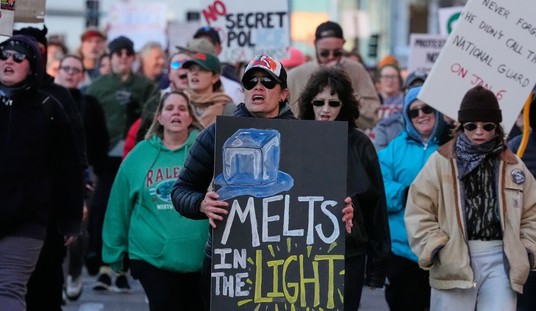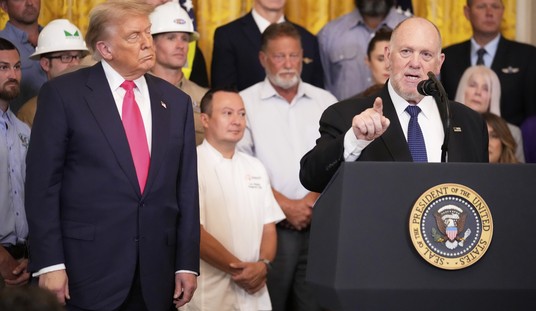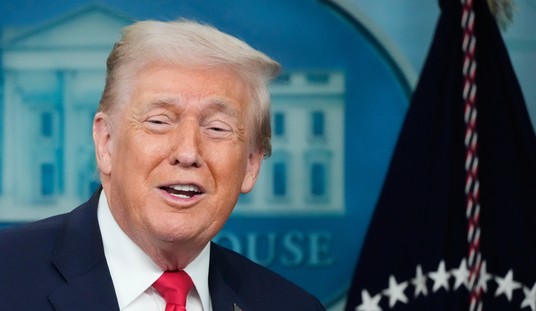=========
=========
Promoted from the diaries by streiff. Promotion does not imply endorsement.
=========
=========
In Trump vs. Hawaii, the United States Supreme Court largely ducked the issue of whether the injunction against Trump’s travel ban was overly broad. To be sure, liberal groups and actors have made no secret of the fact they intend to use the courts to thwart many of the items on Trump’s agenda. For example, in order to prevent the construction of a wall on the California border with Mexico, the state is prepared to use environmental regulations and laws against the administration’s efforts. In the travel ban case out of Hawaii, it becomes apparent that these groups are judge-shopping, or finding district court judges and Circuit Appeals courts that skew liberal.
Fortunately, the Court may not be able to avoid the practice of issuing nationwide injunctions much longer due to an unusual and interesting case involving another Trump agenda item. In response to an Executive Order, Attorney General Jeff Sessions announced that the federal government would cease giving grants to jurisdictions that refused to cooperate with federal immigration enforcement efforts. Claiming that the conditions imposed by Sessions were illegal and unconstitutional, the City of Chicago sued in federal district court claiming the Justice Department cannot withhold funds under the Edward Byrne Memorial Justice Assistance Grant Program (JAGP).
District Court Judge for the District of Northern Illinois Harry Leinenweber ruled against the Justice Department claiming that he could trace the actions of Sessions to no statutory authority. The first action struck down was the “notice provision” which required local law enforcement to notify federal ICE officials of those they suspected of being illegal aliens. The second part struck down was the “access” provision which required ICE officials to enter facilities to interview suspected illegal aliens. As has been noted, Chicago considers itself a “sanctuary city.”
But the judge went even further. He enjoined the Attorney General from enforcing the policy not only against the city of Chicago, but against any and all jurisdictions throughout the United States. The District Court refused to stay the injunction pending appeal and it was appealed to the Seventh Circuit Court of Appeals. A three-judge panel unanimously upheld the District Court’s decision in full stating they could find no statutory authority to withhold the grant funds. Addressing the nationwide nature of the injunction, they noted that such injunctions should be rarely used, but since this involved immigration law, the fact there was no statutory authority in the first place dictates that the injunction be enforced nationally. One judge- Daniel Manion- dissented with respect to the nationwide nature of the injunction arguing that no other jurisdictions had joined this case involving Chicago.
The government sought and received en banc review of the decision, but delayed argument until after Trump vs. Hawaii was decided. The government then appealed directly to Justice Kagan in her capacity of oversight of the 7th Circuit and she required responses no later than 5:00 PM on June 27th. In essence, the Solicitor General, Noel Francisco, is conceding the merits of the case and arguing for action on the nationwide basis of injunctions emanating from local District Courts. Not only in this case, but in the travel ban and DACA cases have such injunctions happened.
That letter from Francisco to Kagan then withdrew the government’s application for a stay against the injunction pending rehearing before an en banc Seventh Circuit on the nationwide aspect of the case. The Seventh Circuit had issued a stay against the nationwide injunction and applied the injunction only to the city of Chicago. If the en banc proceeding goes against the government, one can expect an appeal to the Supreme Court.
Whether the Court takes such a case remains to be seen. In his concurrence in the Hawaii decision, Justice Thomas tackled this issue head-on. Under the concept of equitable relief for plaintiffs in a case, that doctrine makes the relief specific to those plaintiffs. As Thomas notes, the nationwide nature of injunctions makes every local “problem” a national issue.
This is a calculated risk by the Justice Department- conceding the merits- to address nationwide injunctions. Should the Court take this case and reverse the Seventh Circuit with respect to the nationwide ban aspect, then those who wish to obstruct the Trump agenda would have to do so on a district-by-district basis which would make the effort that more difficult logistically and financially. It would also likely eventually create splits between circuits which may force the Court to reconsider the statutory aspects- or merits- of the case.
Something must be done to reign in the Left’s use of the courts to thwart actions clearly within the purview of the Executive Branch of government. If losing a battle on the merits over a law enforcement grant program is the cost to win the war and reign in a liberal judiciary, then it is a strategy worth pursuing. Whether that effort is undertaken by the Supreme Court or whether Congress acts, it is a fight worth the effort.













Join the conversation as a VIP Member